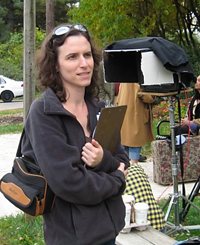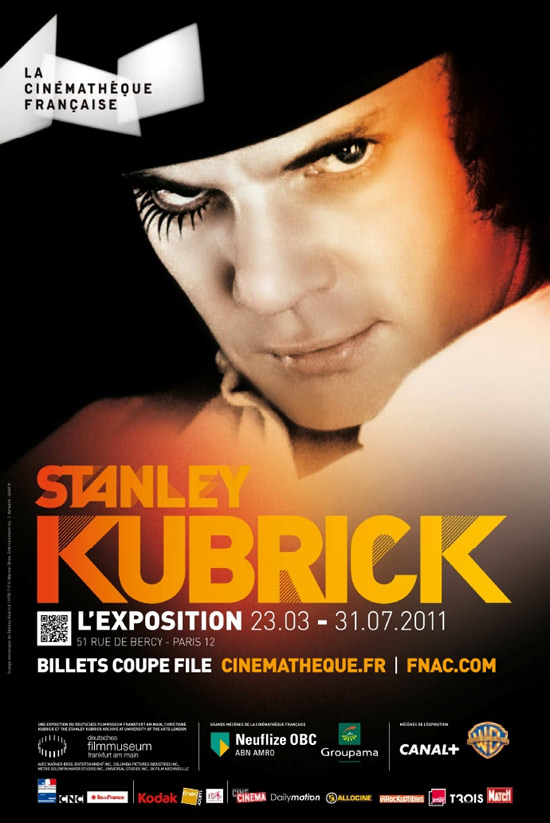Rachel Gordon first posted on this blog about tapping into the educational market, and what we need to do to be in a position to benefit from the opportunity before us. Today, Rachel continues with an update on how that market, like everything else, has evolved during this Age Of Digital Disruption.
Like the rest of the media consumption world, educational uses for films no longer solely occur by watching DVDs. Though non-theatrical forums are still mostly reliant on physical copies to screen, there is a growing trend of streaming media for classes. This is done in multiple ways: using a provided username and password at a designated website, logging into a central institutionally-owned server to watch a film in preparation for an upcoming lecture, or training people in several geographical places at the same time.
Included in this post are collaborative initiatives that benefit both parties – producer and cultural organization – using media. It makes the audience base larger while showcasing progressive agendas and cutting edge ideas. Everyone should think about what kinds of unique projects can be expanded on from even a portion of the films they are creating, or scenes that might have been deleted but still hold value. Admittedly, most of us would prefer to have an entire piece being seen but if a group of people can benefit from isolating a 5-minute clip, this should still be fostered.
Some recent impressive uses of media used by organizations in an online streaming capacity that create social capital and extend human awareness are:
The College of Direct Support began a Film For Thought (FFT) series, utilizing Body & Soul: Diana & Kathy as a tool for training direct support providers, state agencies, and colleges with personalized stories of people with disabilities. Body & Soul: Diana & Kathy is the story of two women with different disabilities – one with Down Syndrome and the other with Cerebral Palsy – who help each other to live independently outside of institutions and lobby Congress for disability rights.
Film for Thought (FFT) Courses are courses built on one film. Their curriculum is designed for learners to connect CDS courses, content, and learning to the main themes and story line of each film chapter. Learners are also asked to integrate this with their work as a Direct Support Professional or Frontline Supervisor. FFT courses will help learners see, hear, and feel how many of the issues are played out in the real lives of people with disabilities. Currently, over 800 individuals have used this course.
You can see more about the program by clicking here.
The Roshan Foundation is a nonprofit organization supporting the preservation, transmission, and instruction of Persian culture. In a pilot project to reach out to new students attending university courses in Asian studies, they decided to use cinema that came directly from the region and collaborated with AsiaPacificFilms.com, a streaming-only service that showcases over 500 films from every Asian and Pacific community worldwide. The foundation took 24 of those films and created a curriculum, with academic introductions, to provide faculty and students located anywhere immediate access to this cultural resource through a designated portal. You can see the creatively multi-layered result by clicking here.
It was a success and now a similar program focusing on Korea is in the works.
Freedom Machines, a film which originally aired on POV, about how assistive technology helps people with a variety of disabilities to actively participate in their communities, was placed on the internal server of Sun Microsystems, in its chaptered sections, for employee education. It was made accessible throughout all of their offices internationally to show how and why disability accommodations in the workplace are necessary. Progress Energy is also utilizing the film as part of its diversity initiative in explaining the complications of barriers in any corporate setting.
The film Monica & David, about a couple with Down Syndrome who gets married which was broadcast on HBO, collaborated with the American Council for the Blind. This unique partnership provided the filmmaker much needed accessibility features for creating their DVD while expanding the audience online to people who were visually-impaired by creating audio description. For the HBO broadcast debut, an audio described version of the film was produced with ACB Radio, who was able to enjoy a free simulcast stream that night. ACB Radio is American Council of the Blind’s free online station.
These examples wouldn’t be on the top of anyone’s lists as initial ideas in marketing plans or distribution strategies, but they’ve all increased public awareness of important causes while providing some extra income, technical tools, or exposure for filmmakers. So I highly suggest keeping your eyes and options open for similar opportunities.

Rachel Gordon is a New York based independent filmmaker and consultant who started Energized Films to help other filmmakers, and distributors, expand the audience of their media into receptive homes in academic, non-profit, and other specialty markets. She’s currently developing a comedic feature about feminine fear of commitment, making a documentary about homeopathy, and speaking to film schools about the importance of teaching distribution to students.




